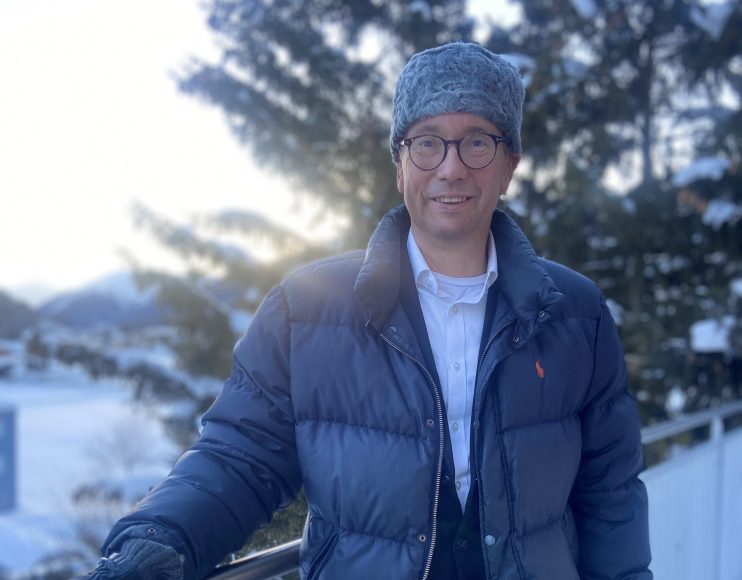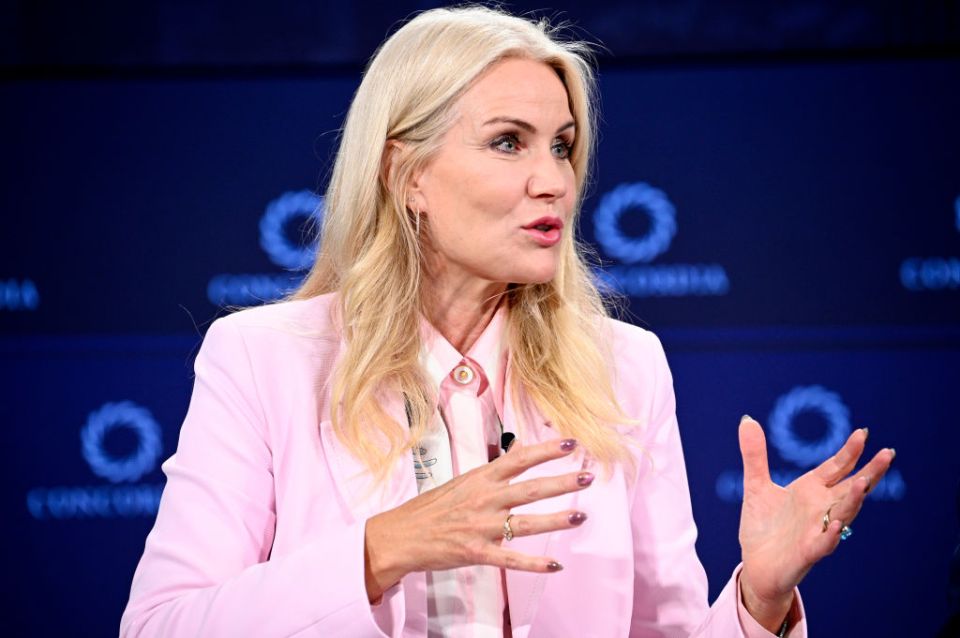The Notebook: Davos is a three-star ski resort – but it’s a worthwhile jamboree

Neil Bennett is a former City journalist and now global co-chief executive of H/Advisors, a strategic comms advisory firm. He writes for City A.M. fortnightly – this week, from Davos
DAVOS gets a bad rap. Every year as World Economic Forum’s conference kicks off in that maddeningly remote, three-star ski resort, there is no shortage of columnists ready to denounce it as an elitist jamboree, peopled by preening politicians and business leaders and their enormous tribes of hangers-on.
True, there have been years in the past when the main theme that has emerged could be paraphrased as ‘the world would be perfect if everyone was as rich, powerful and clever as we are’. Also, for an economic conference, it has seemed wholly incapable of producing an accurate picture of our economic future.
I have been coming back and forward to Davos now for some 15 years and I have to admit that for much of it I was one of those sceptics, and watched slack-jawed as Tony Blair glad-handed his way down The Promenade looking for business, or when stretch limousines pulled up outside The Piano Bar with their cargo of underdressed young women.
Now though we live in different times. The global elite is no longer preening itself, but seriously troubled about the issues we face. There is a far more serious tone to this year’s conference, against a backdrop of the WEF’s own bleak assessment of the state we are in.
Of course, there is grandstanding and general nonsense. We’re on a Swiss mountain while the future of the US is being decided in Iowa
This is encapsulated in its Global Risks report in which a majority of respondents expect global turbulence and catastrophes in the next decade and just 1 per cent see the outlook as calm.
In an increasingly fragmented and confrontational world it is also reassuring that Davos is a safe space where the leaders of more than 60 countries and the CEOs of more than 100 major businesses can meet and discuss. Other international summits tend to be the preserve of governments where business barely gets a look in.
Of course there is the inevitable grandstanding and general nonsense. The enormous Chinese delegation is clearly here to drum up business for its flagging economy rather than engage in wider meaningful debate. And sometimes Davos ends up being a sideshow – we are all talking on a Swiss Mountain while the future of the world’s superpower is being decided in Iowa. But after years of questioning its value, I have come round to Churchill’s maxim that ‘jaw jaw is better than war war’.
Democratic Deficit
Wars take many shapes and forms these days. The H/Advisors’ event at Davos this year focus on the information war and the enormous threat that social media and AI pose to democracy. By the time you read this I will be proudly hosting a panel with William Lewis, publisher and CEO of Washington Post, and Helle Thorning Schmidt, former PM of Denmark who now sits on the Oversight Board at Meta.
The threat will come into sharp focus this year, when a record number of people around the world – more than 2 billion – head to the polls. Already we have seen the Chinese try their hardest to disrupt the Taiwanese election with a blizzard of misinformation. As always, it is easier to identify the problem than devise a cure.

Will’s view is that it is not only democracy that is threatened in this age of misinformation but also the news media – five minutes to midnight is how he describes it. So our session is intended to be a wake-up call, that appropriately kicks off as a 7am breakfast.
AI already
It’s little wonder that everyone at Davos this year is so worked up about the perils of AI. Many of the slogans – and you are nothing without a slogan here – cannot seriously have been dreamt up by a human.
Take this one for example: “unite: innovate: transform”. Does this belong to a rising Asian economy, a populist politician, or perhaps an ambitious sports team.
None of the above. It is in fact the slogan for the Crypto 2030 pavilion. Perhaps they could be forgiven for using a machine to write their publicity blurb.
Can I quote you on that?
“Our greatest risk is not China. Our greatest risk is ourselves.”
Ray Dalio, Founder of Bridgewater Associates, adds more chill to the mountain air at Davos.
Recommendation
While news coverage of Davos naturally focuses on soundbites from the (very) rich and powerful, the WEF issue a range of reports before and during the event which are well worth reading and often overlooked. If you are ever troubled by optimism or exuberance, read this one. It will re-establish all your fears and trepidation in a few pages.
